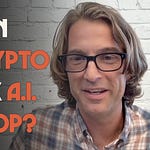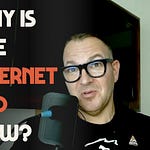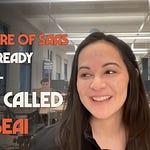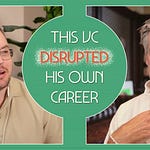Peter Thiel is a complicated man, operating at the blurred edge of genius and provocation, contrarianism and influence—exactly the kind of figure whose gravitational pull bends the trajectory of entire industries. Mario Gabriele, in his magnum opus on Founders Fund, takes us deep into this enigmatic firm, unpacking their unique blend of strategic soft power, stubborn anti-mimeticism, and moral ambiguity. In this conversation, Mario shares his behind-the-scenes insights, exploring how Founders Fund carved out a competitive edge so sharp it practically draws blood, how their carefully cultivated narrative quietly shapes Silicon Valley, and why reckoning with Thiel requires embracing complexity rather than retreating into comfortable binaries.
Below are my three big takeaways, but you should really watch the conversation. (This was also The Leverage’s first Substack Live, so let me know if you have any feedback!)
1. Competitive Edge: "Anti-Mimesis, Baby!"
Mario captures Founders Fund’s core investment philosophy as something wonderfully and aggressively contrarian—or, to use the right literary flourish, anti-mimetic. Founders Fund doesn't merely zig while others zag, they zag so far off-course they're practically flying in opposite directions through parallel universes. Their explicit goal: find the niche of competitive differentiation and pummel it until it yields billion-dollar companies.
"It's a religion of anti-mimesis and applying that to the world of technology and innovation. It's a relatively neatly encapsulated religion—and Peter Thiel is its prophet."
"Peter once or twice a year has some big macro call, like Moses coming down with a tablet—'Consumer is dead,' or 'AI is out.'"
"Their contrarianism is showing up most at the moment in what they're not doing—especially not flooding capital into AI like literally everyone else."
2. Soft Power: "Subtlety Beats Noise"
The second key takeaway is Founders Fund’s mastery of soft power—an almost Zen-like precision in controlling narratives indirectly. Instead of blaring horns through incessant tweeting (though they have their share of noisy figures), they cultivate influence with a philosophical heft that's just quirky enough to make Silicon Valley's intelligentsia cock their heads thoughtfully, stroke their metaphorical beards, and nod, yes, yes, very intriguing indeed.
"Soft power initiatives often work best when they're one or two degrees removed from the most direct version. Peter writing a philosophy book that's sort of a startup book is a slight orthogonal move extending power in slightly different places."
"They don't just have noisy people; they have originality. They say unusual things. You don't attract attention just by trying—you have to be interesting."
"Their super narrative—civilization is stagnating—guides everything. This framing alone creates magnetism."
3. Moral Calculus: "Peter Thiel, Ethical Mobius Strip"
And here, at last, we wander into the tricky and morally slippery terrain of venture capitalism à la Thiel, who emerges not so much as a clearly defined hero or villain, but rather a kind of intellectual and ethical Möbius strip. Mario navigates this terrain with commendable grace, making it clear that evaluating someone like Thiel requires contending with both visionary impact and troubling compromise.
"You can have long debates about Palantir, about Anduril, about Trump. But I believe Palantir and Anduril are net very good things for the world, particularly for liberal democracy—not unblemished, but virtuous."
"If you're someone who thinks everything is stagnant and corrupted, then throwing a hand grenade into the public sector can feel worthwhile. I can appreciate how he came to that conclusion, even if I deeply disagree."
"Ultimately, genius is not a Panglossian thing—it's usually got a lot of darkness to it. We must make peace studying people without demanding they're our best friends."
Mario's insights clarify that Founders Fund’s competitive edge arises precisely from their willingness to stand apart from popular consensus; their influence lies not merely in bold proclamations but subtle and strategic soft-power cultivation; and that grappling honestly with their moral complexity might be the most interesting—and perhaps necessary—work of all.
Thank you John Airaksinen, Alden Huschle, Parnian, Marijan Prša, valentina, and many others for tuning into my live video with Mario Gabriele! Make sure to subscribe so you can join the next conversation.












